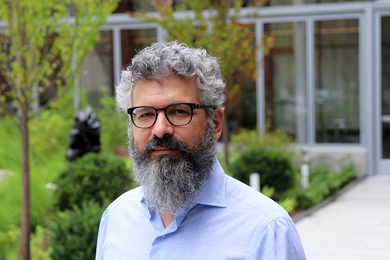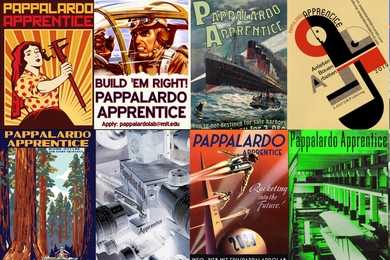Edward Allen, longtime associate and visiting professor of architecture at MIT, passed away from complications of Parkinson’s disease on July 7 in Wayland, Massachusetts. He was 81 years old.
An architect by training, Allen was the author of bestselling books for architecture students and practitioners. A faculty member in the MIT Department of Architecture from 1968 to 1983, his research and teaching focused on building materials and construction, as well as structural design.
Allen was particularly known for embracing technical constraints in architectural design, and many of his 10 published books are still used in teaching architecture around the country and world, including “Fundamentals of Building Construction” (with co-author Joseph Iano BSAD ’83), now in its seventh edition.
“Ed Allen’s legacy at SA+P runs deep, as an inspiring teacher, an influential writer, and a committed member of the community,” says Hashim Sarkis, dean of the School of Architecture and Planning (SA+P). “Scores of students and faculty became better designers and instructors through exposure to his ideas and approach.”
Allen received a BArch with high distinction from the University of Minnesota in 1962 and an MArch from the University of California at Berkeley in 1964. He was an associate in the architectural firm of Moore/Lyndon/Turnbull/Whittaker for two years and contributed to the design of several significant residential projects at Sea Ranch in California. He then received a Fulbright research grant to study traditional stone structures in southern Italy in 1966-67, during which he wrote his first book, “Stone Shelters” (MIT Press, 1969).
He became a fellow of the American Institute of Architects in 2000, and was awarded the 2005 Topaz Medallion for Excellence in Architectural Education by the American Institute of Architects and the Association of Collegiate Schools of Architecture. The Topaz Medallion jury cited Allen’s role in developing project-driven courses for revolutionizing the teaching of technology in architecture schools.
Allen taught and lectured widely at universities around the world and served as the Pietro Belluschi Distinguished Professor in Architectural Design at the University of Oregon in 1997. He returned to MIT as a lecturer in the Department of Architecture, teaching courses in building technology in 2003 and 2005.
Colleagues remember Allen as a brilliant teacher and designer who inspired students and professors alike with his deep rigor for the tectonics of architectural design and construction.
“Ed’s playful approach in linking architectural geometry with structural performance has galvanized generations of students and faculty to consider form and force as interacting drivers in creative design, and has certainly informed my own outlook and work in profound ways,” says Caitlin Mueller, associate professor of architecture and civil and environmental engineering.
Former SA+P Dean Adèle Santos says, “Ed’s books are on my bookshelves in my studio and are an essential source for any architectural practice. He was an inventive teacher with clarity of thinking that made students excited and passionate about the technical aspects of design. Ed was also a charming, thoughtful, and generous man. He was patient and calm with students, intellectually provocative and engaging with scholars, and a true friend to many. He will be greatly missed.”
Roger Goldstein BSAD ’74, MArch ’76, spoke for many former students in saying, “Ed’s thoughtful writings and teachings were an invaluable resource to me during school at MIT and later in my career as an architect. He was such a clear thinker and a great teacher — hence the dramatic success of his books on architecture.”
Allen is survived by his wife, Mary Allen, the Jean Glasscock Professor Emerita of Biological Sciences at Wellesley College. Together they established the Edward and Mary Allen Fund in Structural Design at MIT in 2012, to “support activities and teaching that will improve the ability of architects and engineers to design efficient, economical, and expressive structures.”
The endowed fund has brought leading designers to campus to give an annual lecture and work with students in the departments of Architecture and Civil and Environmental Engineering. Over the past nine years, the Allen Lecture has hosted prominent designers — including Jörg Schlaich, Janet Echelman, Les Robertson, and SawTeen See — who have continued to inspire MIT students and faculty in the fields of structural engineering and architectural geometry.









